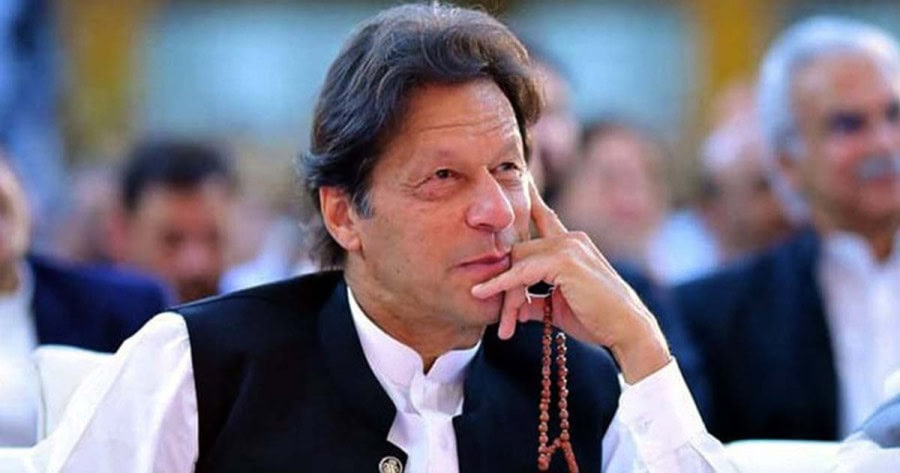Islamabad: Pakistan Tehreek-e-Insaf’s power show at Parade Ground on March 27 power might be called many names, but it was not an underwhelming one. The huge gathering of the supportes of Imran Khan shows that he still holds a special corner in people’s hearts despite the political and economic turmoil in the country.
Following is a timeline of Imran Khan which briefly sketch his journey from entering politics to being one of the most dominant voices the country has ever heard.
The 1980s: During his cricketing career, Imran Khan was offered a government position by the then-president Gen. Zia ul Haq, which he declined.
1993: Imran Khan joined the caretaker government of Moeen Qureshi as the ambassador for tourism. He kept the position for three months until the government was dissolved.
April 25, 1996: Interesting in politics and determined to change the fate of the country, Imran Khan formed a political party named “Pakistan Tehreek-e-Insaf.”
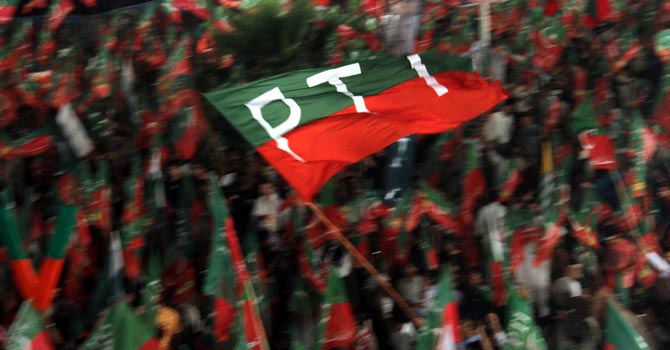
1997: After forming PTI, Imran Khan ran for the National Assembly as a candidate of PTI from two constituencies – NA-53, Mianwali and NA-94, Lahore – but remained unsuccessful and lost both the seats to candidates of PMLN.
Oct 2002: Again in 2002, Imran Khan took part in the general elections. Lucky this time, Imran khan got elected from Mianwali.
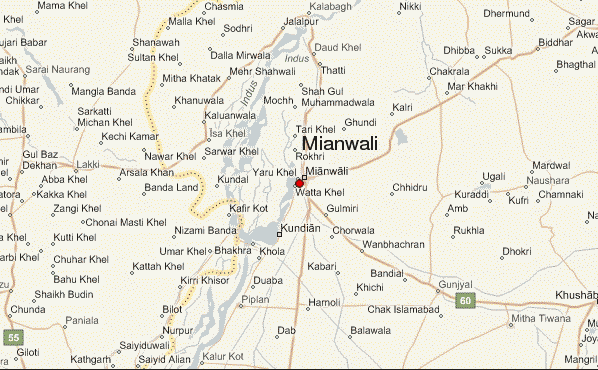
May 2005: The New Yorker magazine mentioned Imran Khan as being the “most directly responsible” for drawing attention in the Muslim world to the Newsweek story about the alleged desecration of the Quran in a US military prison at the Guantánamo Bay Naval Base in Cuba.
October 2007: Protesting against Musharraf’s decision to contest the presidential election without resigning as army chief, as part of the All Parties Democratic Movement, Khan, along with 85 other MPs, resigned from Parliament.
November 2007: In the wake of the emergency declared by President Musharaf, Imran Khan was held under house arrest.
October 2011: The historic and record-breaking “tsunami” of the PTI took place at Minar-e-Pakistan, Lahore, as Imran Khan addressed more than one hundred thousand supporters, present against the policies of the ruling parties.
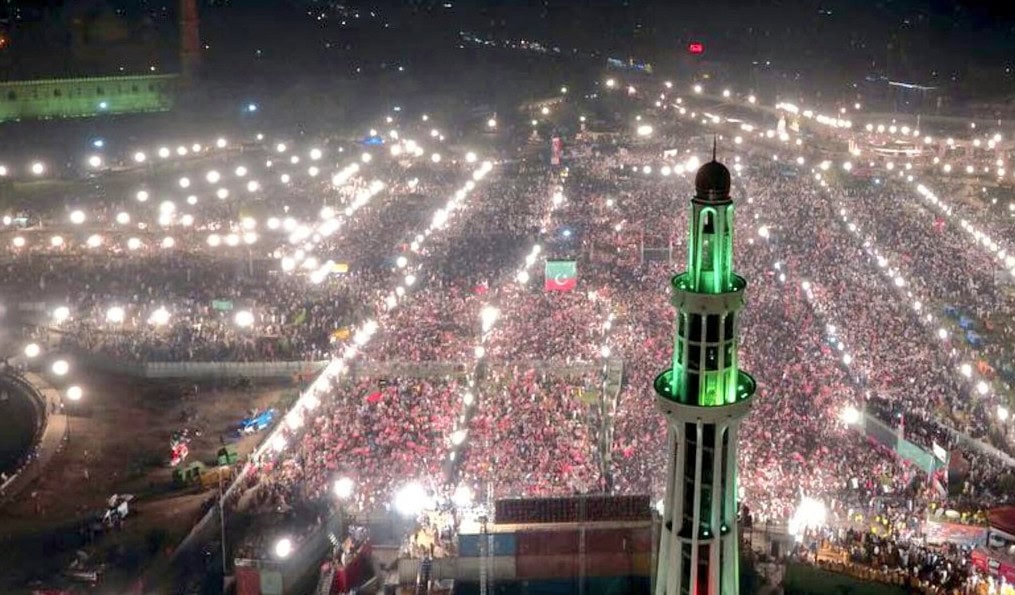
In the same year, Khan held another gathering of hundreds of thousands of supporters in Karachi, which further solidified Iman Khan’s position as a real threat to the ruling parties and a future political prospect in Pakistan.
October 2012: Vocal against the bombing of Pakistani by the West, Imran Khan joined a vehicle rally from Islamabad to South Waziristan against the conduct of US drone operations.
March 23, 2013: On the historic Pakistan Day, Khan introduced the “Naya Pakistan Resolution“ at the start of his election campaign.
During his election campaign, he announced that he would pull Pakistan out of the US-led war on terror and bring peace to the Pashtun tribal belt.
At the final stage of his campaign, Imran Khan fell off the container and was immediately shifted to a hospital in Islamabad.
From the hospital, Khan released a special heart-warming video message to his supporters to stand for their rights.

May 2013: The general elections were held throughout the country, resulting in a clear majority of the PMLN. Khan’s PTI emerged as the third-largest party with 30 directly elected parliamentary seats in National Assembly behind PPP and PMLN. The elections provided a boost to his overall prominence as his party also emerged as the second-largest party in Karachi, the centre of PPP.
2013: As a result of the general elections, Imran Khan formed a government in the province of Khyber Pakhtunkhwa. It was anticipated that the naive government would fail as it lacked experience, but choosing Imran Khan for KPK’s governance, contrary to the expectations, turns out to be a good choice by the people. During his tenure in the province, Khan’s party takes bold decisions and comes hard on corruption, even going after its allies and ministers.
May 2014: Imran Khan Khan alleged that the 2013 general elections were rigged in favour of the ruling PMLN, and in August 2014, led a rally, called “Azaadi March”, of supporters from Lahore to Islamabad, demanding Prime Minister Nawaz Sharif’s resignation and investigation into alleged electoral fraud.
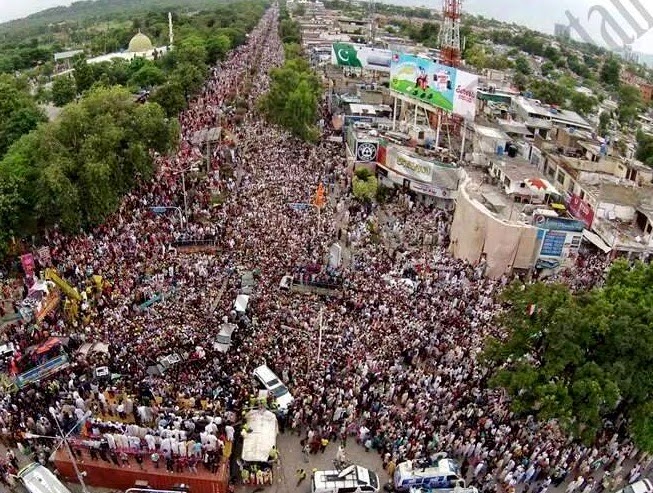
September 2014: Imran Khan entered into a de-facto alliance with Canadian-Pakistani cleric Muhammad Tahir-ul-Qadri. Both aim o mobilise their supporters for regime change.
Khan agreed with the Sharif administration to establish a three-member high-powered judicial commission that would be formed under a presidential ordinance.
The commission would make its final report public. If the commission proves a country-wide pattern of rigging, Prime Minister Nawaz Sharif would dissolve the national and provincial assemblies in terms of articles 58(1) and 112(1) of the Constitution.
That would mean that the premier would also appoint the caretaker setup in consultation with the leader of the opposition and fresh elections would be held.
2018: Imran Khan contests the general election from NA-35 (Bannu), NA-53 (Islamabad-2), NA-95 (Mianwali-1), NA-131 (Lahore-9), and NA-243 (Karachi East-2). Having no precedent in history, Imran Khan won all five constituencies surpassing Zulfikar Ali Bhutto, who had contested in four but won in three constituencies in 1970. As per official results, Khan leads the poll, although his opposition, mainly PMLN, alleges large-scale vote-rigging and administrative malpractices.
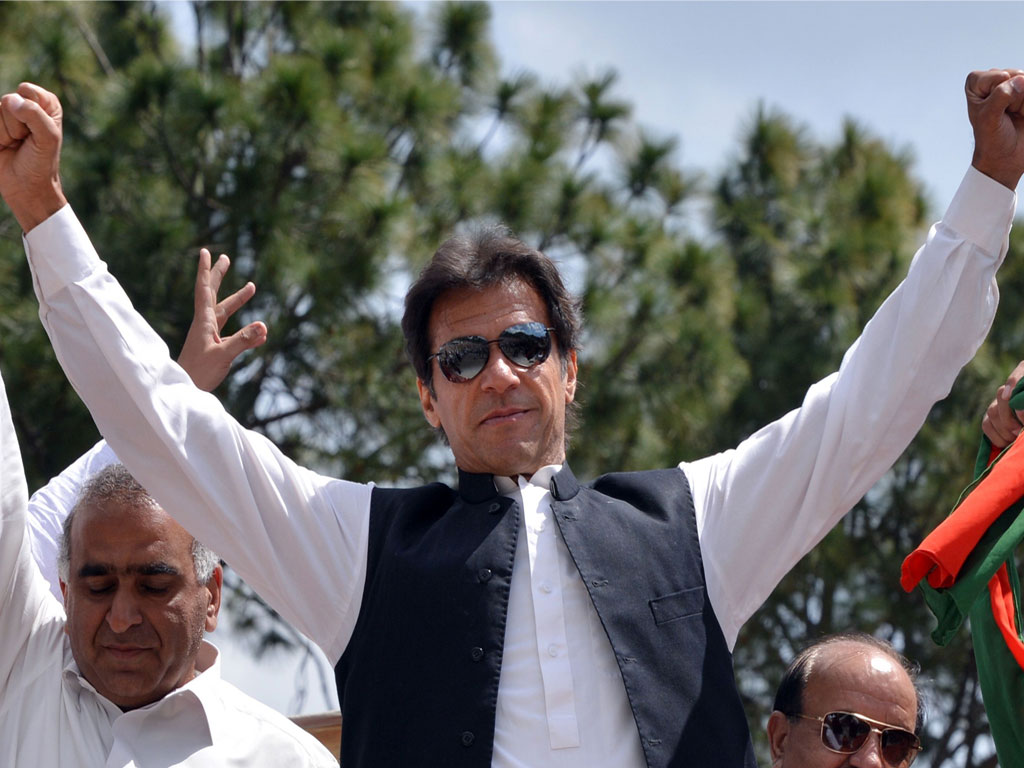
After coming to power, as per his 100-day government agenda, Imran Khan started working on the creation of a new province in Southern Punjab, fast-tracking the merger of Federally Administered Tribal Areas into Khyber Pakhtunkhwa, betterment of law and order situation in Karachi, and betterment of relations with Baloch political leaders.
August 6, 2018: PTI parliamentarians officially announced Imran Khan as the candidate for Prime Minister. Securing 176 votes and becoming the 22nd Prime Minister of Pakistan, Imran Khan took an oath of office on August 18 2018.
During his victory speech, he laid out the policy outlines for his future government. Khan said his inspiration is to build Pakistan as a humanitarian state based on the principles of the first Islamic state of Medina. He described that his future government would put the poor and commoners of the country first, and all policies will be geared toward elevating the standards of living of the lesser fortunate. He promised an investigation into rigging allegations. He said that he wanted a united Pakistan and would refrain from victimizing his political opponents. Everyone would be equal under the law. He promised a simple and less costly government, devoid of showy pompousness in which the prime minister’s house will be converted into an educational institute, and governor houses will be used for public benefit.
During his tenure, Prime Minister Imran Khan tried to carry out balanced relations with each country in the world.
July 2019: Imran Khan visited the United States and was warmly welcomed by then-president Donald Trump.
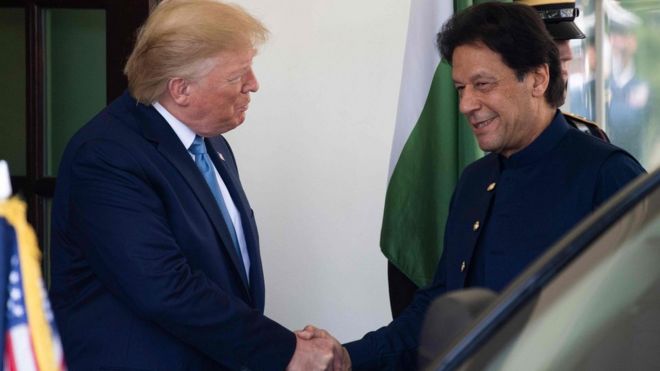
Other than the U.S., Pakistan also prioritized good relations with Saudi Arabia, Iran, China, Turkey and Russia.
On the matter of Israel, Imran Khan established that Pakistan will never recognize Israel until a Palestinian state is created, a statement in line with the vision of Pakistan’s founder Muhammad Ali Jinnah.
In domestic economic policy, Khan inherited a twin balance of payments and debt crisis with a large current account deficit, and fiscal deficit in 2018, Khan’s government sought a bailout from the IMF.
In exchange for the bailout, Khan’s government slashed subsidy spending in the energy sector and unveiled an austerity budget to curb the fiscal deficit and limit government borrowing. Also, the IMF demanded that the Pakistani government depreciate the rupee, and improve tax collection. Khan’s government decided to raise import tariffs to collect higher tax revenues and devalued the currency, this alongside the heavy import duty helped to curtail the current account deficit.
Pakistan’s overall balance of payment position improved significantly following record-high remittances in 2020, which stabilised the central bank’s foreign exchange reserves.
The fiscal deficit narrowed to less than 1% of GDP by 2020 due to the government’s austerity policies.
Thus the rate of debt accumulation had significantly slowed, but Pakistan’s debt remained high due to the high borrowing of previous governments in which the current government had to allocate $24 billion to pay off loans taken during the tenure of previous governments.
2020: In 2020, the Coronavirus pandemic shook every aspect of the global structure, with countries struggling to curb the spread of the virus. Khan’s government rolled out the largest welfare programme in Pakistan’s history, with a fund of almost $1 billion aimed at the country’s poorest segment of the population.
Other than rolling out a welfare programme, the government under the leadership of Khan managed the spread of the virus very efficiently and received worldwide appreciation from organizations like WHO and Gates Foundation.
2020: Khan’s government commenced building work for the Diamer-Bhasha Dam as part of his government’s investment in renewable energy projects.
Khan’s government introduced reforms to Pakistan’s bloated public sector. The public sector consisted of state-owned enterprises that were consistently making losses and accumulating debt for decades, including national services such as railways, airlines, postal services as well as other state-owned companies such as Pakistan’s state-owned steel company.
August 2021: Khan celebrated the departure of the United States from Afghanistan, describing it as Afghans breaking “the shackles of slavery”.
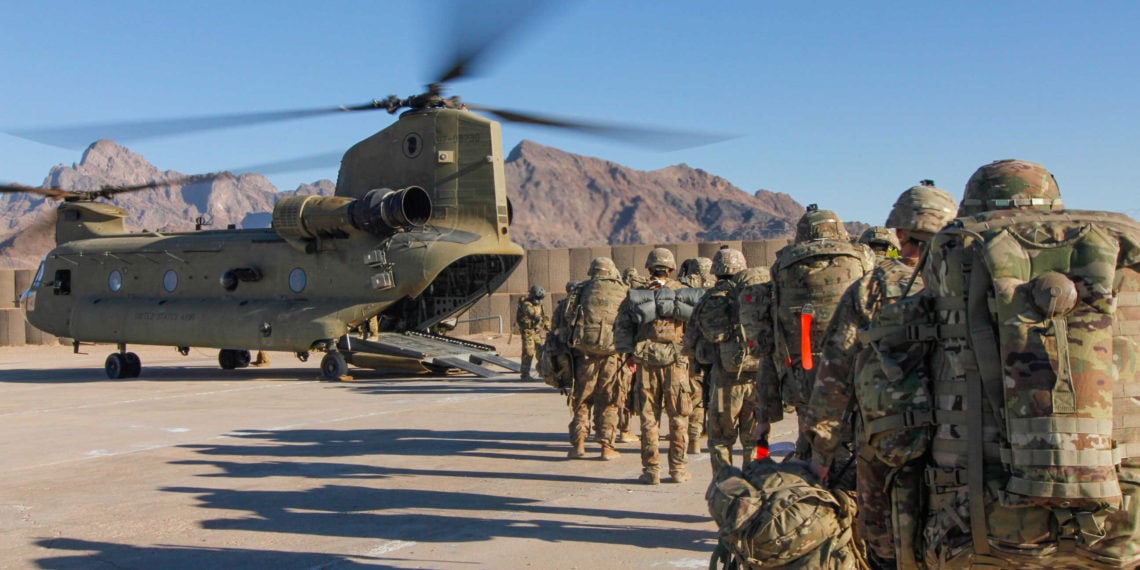
Since then, the Premier has raised his voice on every possible global forum, including UNGA come to the aid of the Afghan people, and avoid humanitarian crises in the country.
December 2021: Under the leadership of Imran Khan, Pakistan hosts a special meeting of the OIC on Afghanistan. As a result of this meeting, all Muslim countries pledged to help Afghanistan avoid catastrophic humanitarian crises. The Islamic countries also agreed upon the creation of the Islamic Development Bank.
March 15, 2022: Pakistan presented a resolution at the United Nations General Assembly requesting the UN declare March 15 as an “International Day to Combat Islamophobia”. The day holds significance because on the same day an armed man had massacred more than 50 Muslims inside a mosque during Friday Prayer on 15 March 2019.
March 2022: Pakistan hosted the 48th session of the Council of the Foreign Minister of the Organization of Islamic Cooperation onMarch 22-23. During this session, the member countries pledged to fight islamophobia worldwide and congratulated all on the successful passage of a resolution at the UN declaring March 15 as an “International Day to Combat Islamophobia.”
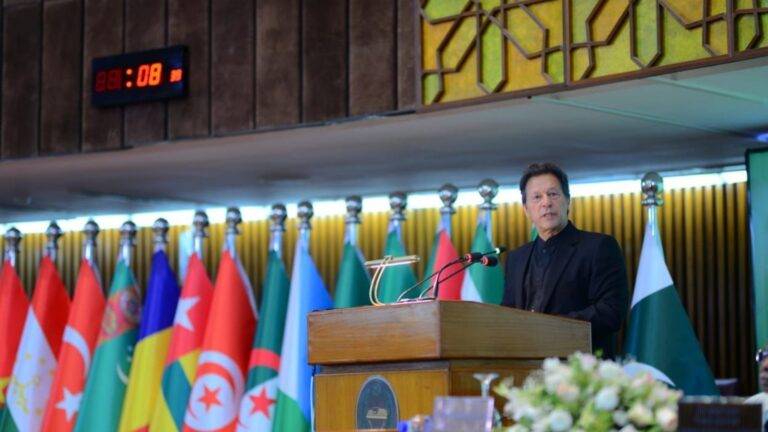
Currently, at home, Prime Minister Imran Khan is facing a no-trust motion submitted against him by the joint opposition under the leadership of PMLN President Shehbaz Sharif, PPP Co-Chairperson Asif Ali Zardari and JUIF Head Maulana Fazlur Rehman.
The national assembly is likely to sit in the first week of April to conduct voting on the no-trust motion.



